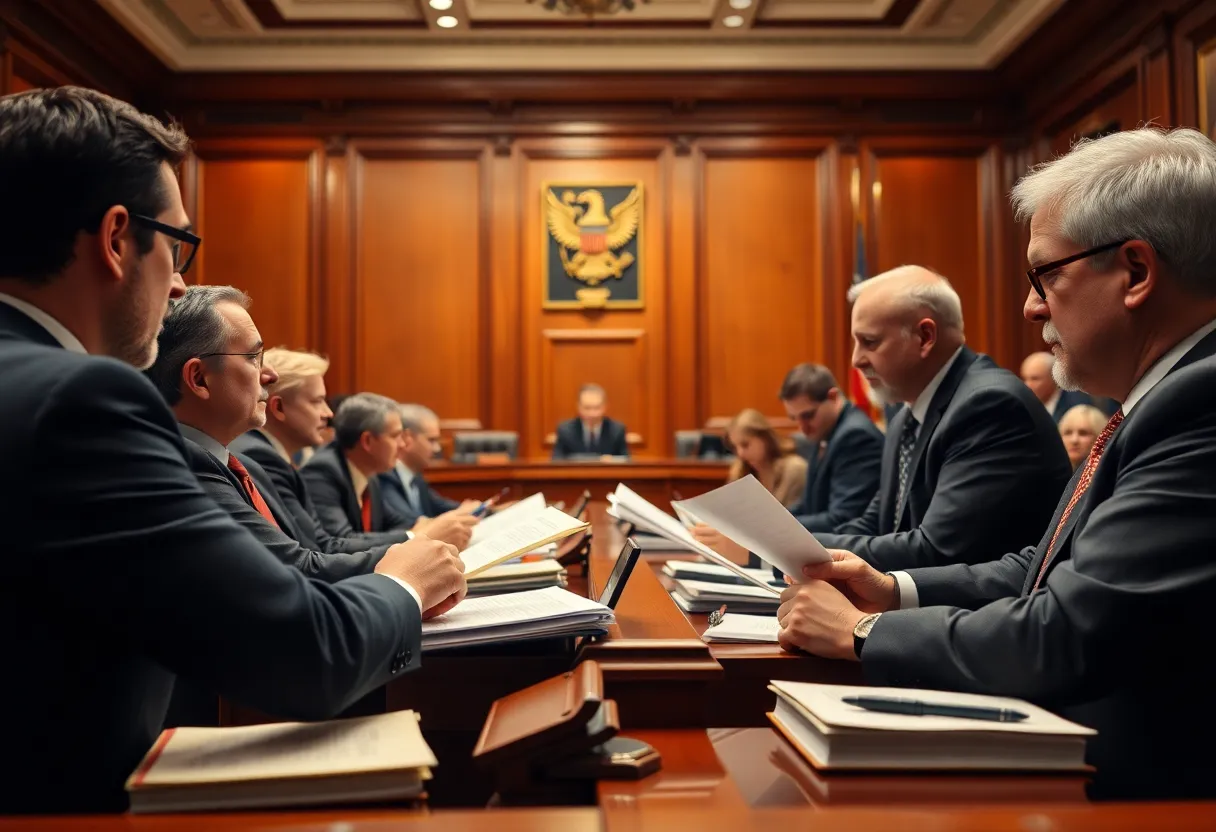Buffalo, October 21, 2025
James Comey’s attorneys have filed a motion to dismiss federal charges against him, arguing that the case is driven by President Trump’s personal bias. The motion, filed in Buffalo, NY, emphasizes evidence of prosecutorial misconduct and retaliation stemming from Comey’s criticisms of Trump during his tenure as FBI Director. As debates around political prosecutions intensify, the upcoming hearing is expected to attract significant legal attention and could have broader implications for similar cases nationwide.
Comey Case Dismissal Sought Over Trump Animus Claims
Buffalo, NY – October 21, 2025
In a high-stakes legal development, attorneys for former FBI Director James Comey have filed a motion to dismiss federal charges against him, claiming the case is driven by President Trump’s personal animus. The filing, submitted today in U.S. District Court in Buffalo, New York, argues that the prosecution lacks merit and represents a politically motivated vendetta. This move has drawn immediate attention from legal circles, with experts anticipating a contentious hearing scheduled for next month.
The motion highlights evidence including leaked documents and witness testimonies that, according to Comey’s legal team, demonstrate bias originating from the highest levels of the current administration. They assert that the charges—stemming from Comey’s tenure at the FBI and his public criticisms of Trump—are not based on substantive legal violations but rather on retaliation for perceived disloyalty. Comey’s lawyers emphasize that pursuing the case undermines the integrity of the justice system and sets a dangerous precedent for targeting political opponents.
Comey’s defense strategy focuses on proving that the investigation was initiated and sustained due to Trump’s expressed dissatisfaction with Comey’s handling of past investigations, particularly those involving election interference and national security matters. The team has vowed to vigorously contest what they describe as an abuse of prosecutorial power, urging the court to throw out the charges entirely before the case proceeds further. Federal prosecutors have yet to respond publicly to the motion, but sources close to the Department of Justice indicate preparations for a robust defense of the indictment.
Local and National Implications
Buffalo’s federal courthouse has become an unlikely focal point for this national controversy, highlighting the city’s role in handling significant cases that extend beyond regional boundaries. Local law firms and legal scholars in Western New York are closely monitoring the proceedings, as a ruling here could influence how politically charged prosecutions are evaluated across the country. If the motion succeeds, it might embolden similar challenges in other high-profile cases, potentially reshaping discussions around executive influence in the judiciary.
The case originates from events during Comey’s directorship, which ended abruptly in 2017 following his firing by then-President Trump. Subsequent investigations led to the current federal charges, which include allegations related to mishandling classified information and obstruction. Comey’s attorneys argue that these accusations resurfaced amid ongoing political tensions, supported by the cited leaked materials that reportedly show communications expressing intent to pursue Comey personally. This narrative of personal grudge forms the core of their dismissal request, positioning the case as emblematic of broader concerns over politicization in federal law enforcement.
Broader Context and Expert Views
Legal experts predict the upcoming hearing will be heated, involving intense scrutiny of the evidence presented in the motion. Analysts note that while motions to dismiss on grounds of prosecutorial misconduct are not uncommon, linking them directly to presidential animus raises unique challenges for the court. The proceedings could delve into constitutional questions about separation of powers, especially given the executive branch’s role in directing federal investigations.
Comey’s public profile, shaped by his role in pivotal investigations and his subsequent book and media appearances, has kept him in the spotlight. Supporters view him as a whistleblower against executive overreach, while critics see the charges as accountability for alleged lapses in judgment. Regardless of perspectives, the case underscores ongoing debates about accountability in American politics.
As the court prepares for the hearing, all eyes will be on Buffalo, where this decision could reverberate through legal and political landscapes. The outcome remains uncertain, but it promises to be a defining moment in the intersection of law and leadership.
FAQ
What is the main argument in James Comey’s motion to dismiss?
The motion argues that the federal charges against him stem from President Trump’s personal animus and should be dismissed.
Where was the motion filed?
The motion was filed in U.S. District Court in Buffalo, New York.
What evidence does Comey’s legal team cite?
The team cites leaked documents and witness testimonies to support their claims.
When is the hearing expected to take place?
Legal experts predict a heated hearing next month.
How are local law firms responding?
Local law firms are watching closely as the case could set precedents for political prosecutions.
What is Comey’s stance on the case?
Comey’s team vows to fight what they call a vendetta.
Key Features Chart
| Feature | Description |
|---|---|
| Main Claim | Federal charges driven by President Trump’s personal animus |
| Filing Location | U.S. District Court in Buffalo, NY |
| Evidence Cited | Leaked documents and witness testimonies |
| Upcoming Event | Heated hearing next month |
| Local Impact | Could set precedents for political prosecutions; local firms watching closely |
| Defense Position | Vow to fight the case as a vendetta |


